How has the spread of the new coronavirus changed the lives of people in ASEAN? A Comparative Study of ASEAN Countries Reveals the ASEAN New Normal
- Release date: Jun 15, 2020
- 2366 Views
- Usage and altitude
- daily use items
- Food
- Vietnam
- United States of America
- Thailand
- Indonesia
- E-Commerce
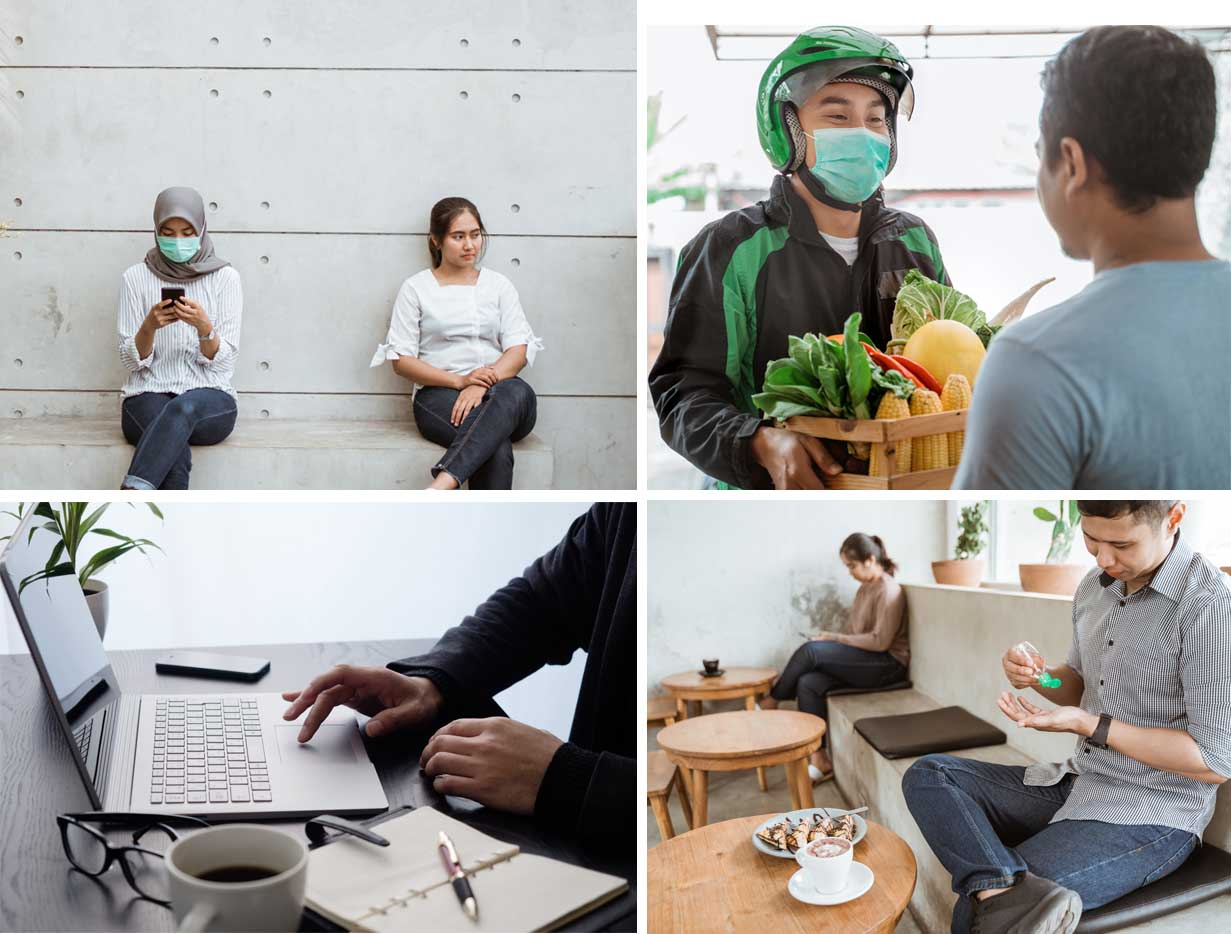
The WHO declared a pandemic on March 11, 2020, and called for stronger countermeasures. Various restrictions were put in place in various countries, and people's lives changed drastically. The new lifestyles and values that emerged during this period are expected to continue into the After Corona phase after the convergence.
In collaboration with TNC Corporation, INTAGE conducted a survey in three ASEAN countries (Thailand, Vietnam, and Indonesia) where many Japanese companies have advanced, and examined the New Normal (new lifestyles and values) that will be the key to developing products and services for the After Corona phase. This article describes the research conducted in each country. In this article, we introduce some of the results of the Internet surveys conducted in each country.
Movements of countries to date
This survey was conducted from May 1 to 7 in three countries, Thailand, Vietnam, and Indonesia, as well as in the United States, a developed country, for comparison.First, let's check the main movements in the major cities of each country. The scale of infection and the scope of behavioral restrictions differ greatly.
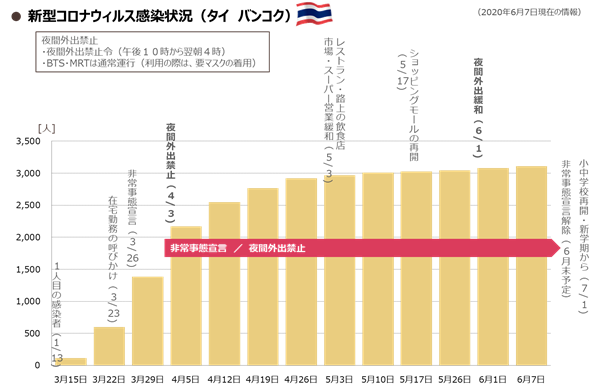
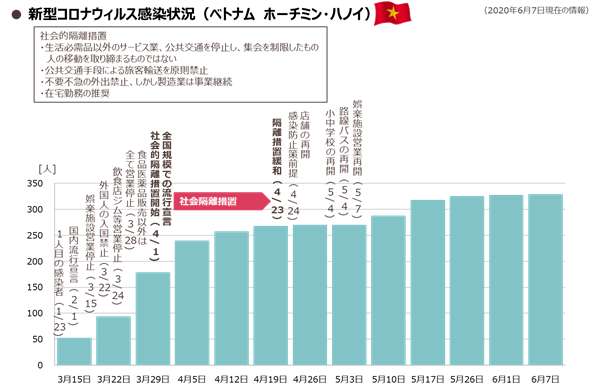
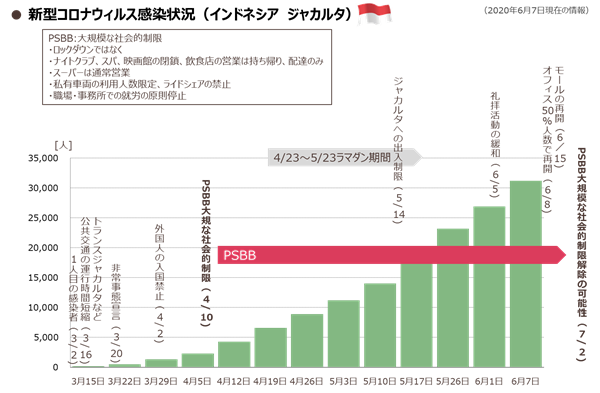
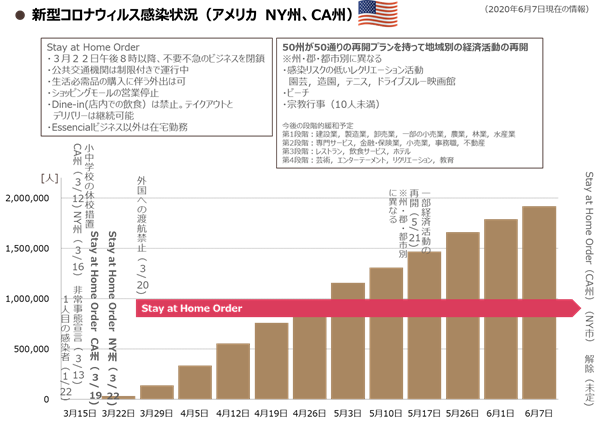
Although there are differences in the experiences during this period, people in each country were forced to make major behavioral changes and are still transitioning to new lifestyles as the restrictions are being eased.
Let's take a look at the data from the six themes we surveyed: values, hygiene and health, food, work and lifestyle, childcare and beauty, and transportation, with a particular focus on three changes that may be key to changing consumption in After Corona.
Key changes in the ASEAN New Normal (1) Change in the sense of distance from people and society
First, let's take a look at the values of sei-katsu-sha.Figure 1 shows the results of the average score of the seven levels of applicability of the values, from [3] to [-3].
Chart 1
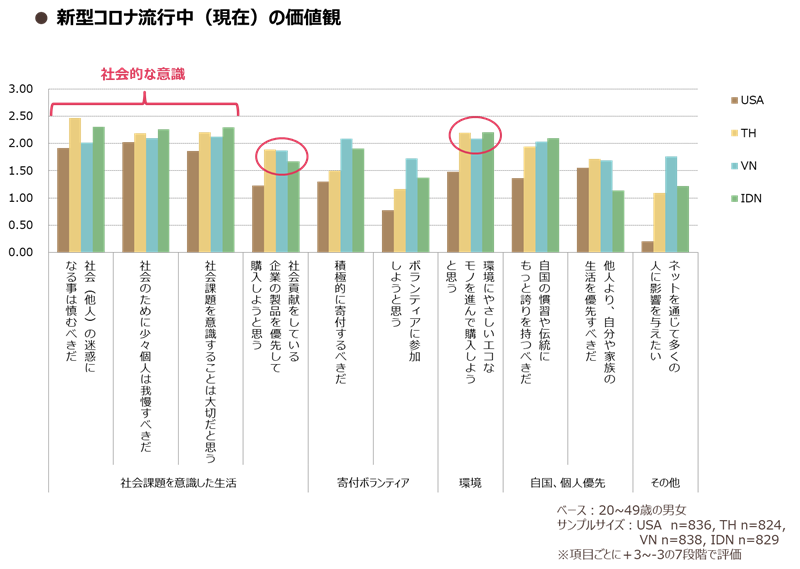
In addition, "I will give priority to purchasing products from companies that contribute to society" and eco-consciousness are also higher than in the U.S., confirming the high level of awareness of "for the good of society" in the three ASEAN countries.
Next, let's take a look at the lifestyles they aspire to. (Chart 2)
Chart 2
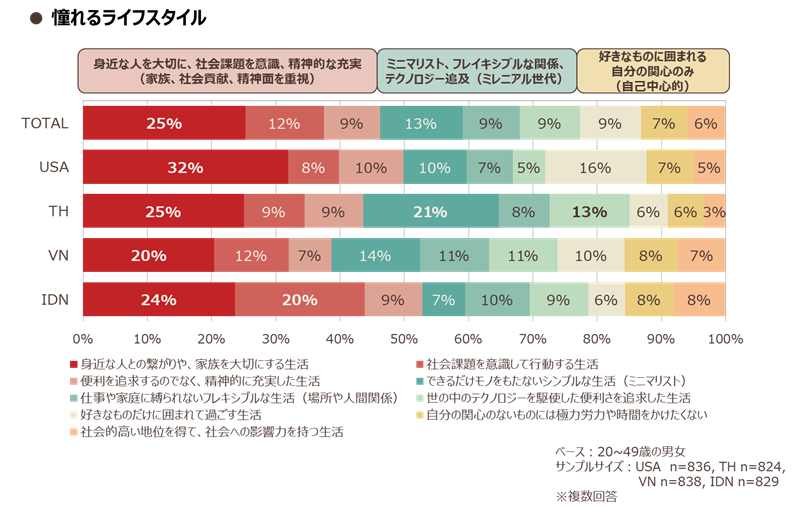
The growing awareness of "for society," "for one's own country," and "for one's family" indicates that ASEAN countries are undergoing a shift toward "reevaluating the distance between people and society. As a result, the evaluation of a company's activities on social issues will come to influence the choice of brand (product).
For example, in Vietnam, the commercial of detergent manufacturer Seventh Generation, which was released on Facebook in April 2020, has become a hot topic. The usual advertising phrases such as "long-lasting scent" and "eye-catching packaging" are struck out, and the brand emphasizes its environmental consciousness by saying, "The reason why the scent is not long-lasting is because it is made from 100% natural ingredients" and "The reason why the packaging is not eye-catching is because it is made from recycled plastic packaging. We believe that such brands will continue to gain support in the future.
Key changes in the ASEAN New Normal (2) Change in awareness of cleanliness
Next, let's take a look at the results of the survey on hygiene and health.Chart 3 shows the quarantine behaviors that people in each country reported as having increased due to the spread of the new coronavirus.
Chart 3
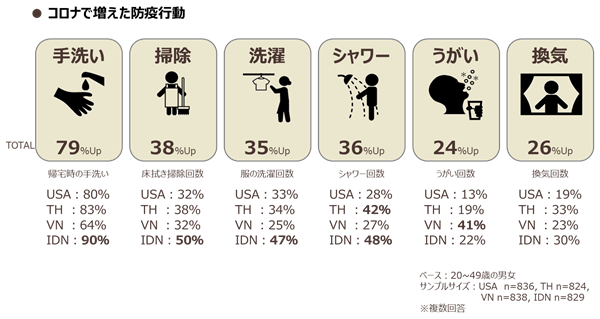
In the Indonesian survey, in response to the request "Please send us photos of your favorite items purchased after the new coronavirus epidemic," we received photos of quarantine goods such as disinfectants and masks, cleaning tools, and home appliances such as washing machines and air purifiers. (Chart 4)
Chart 4
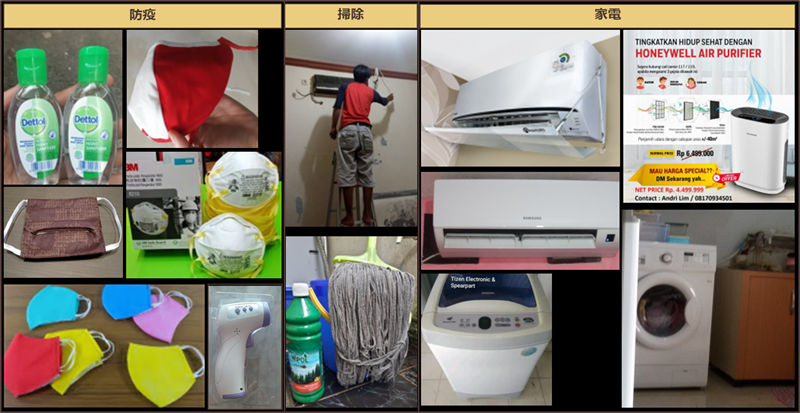
In addition, many people mentioned wearing masks, washing hands frequently, using disinfectants, and using sanitizing detergents as possible remaining quarantine behaviors in the future. (Chart 5)
Chart 5
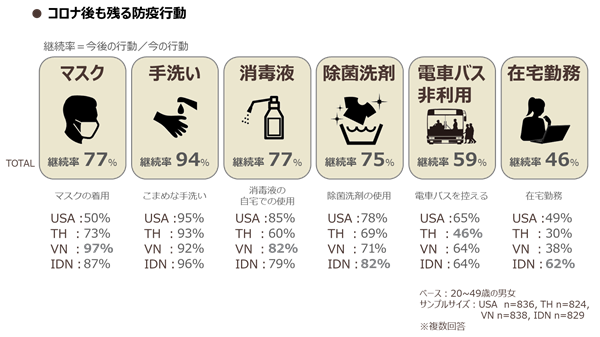
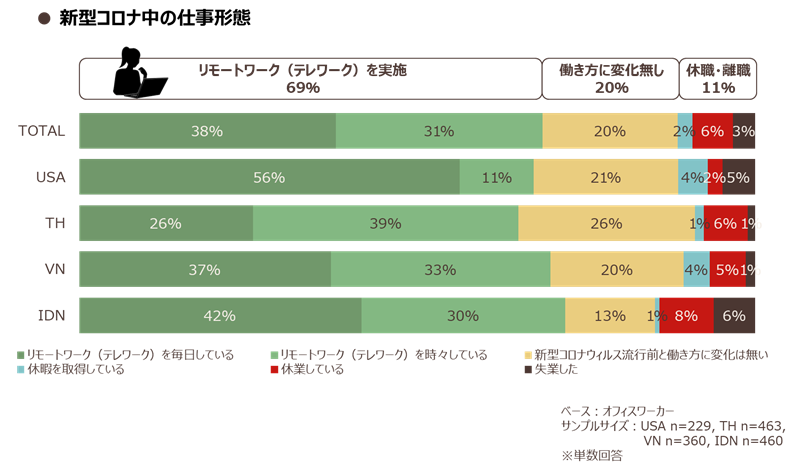
Next, we asked about changes in work styles after the convergence of Corona (Figure 7), and more than 50% of respondents, except for Vietnam, thought that remote work would increase. In Vietnam, many respondents answered that "staggered work hours will increase" instead. Although there seems to be a conservative view that "work styles will change, but not significantly," it seems that remote work will become a normal way of working for many people.
Chart 7
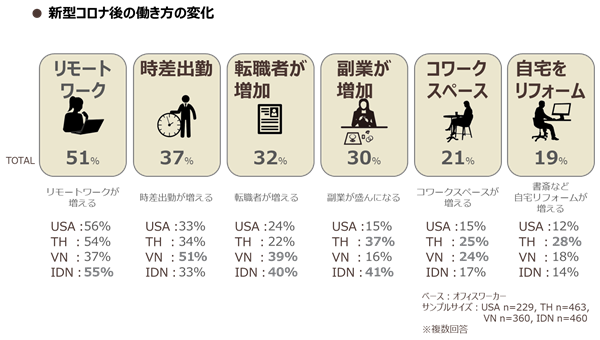
Restrictions on going outside the home have also led to the use of e-commerce. When asked about new EC purchases since April, when the new coronavirus epidemic broke out, food delivery and foodstuffs were the top items. (Figure 8)
It is clear that people are using EC to order the things they need for their daily lives.
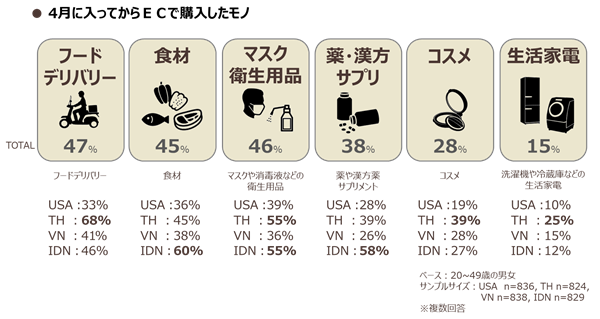
As the distance traveled decreases with the introduction of remote work and the use of EC, the opposite increases: time. How will we use the increased time? We asked what kind of time has increased as a result of the new coronavirus epidemic. (Chart 9)
Chart 9
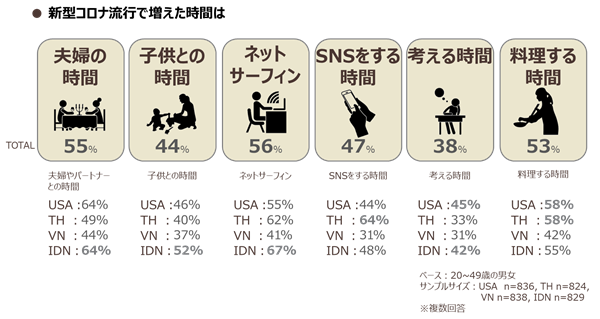
After the convergence of the infection, the restrictions on going outside will disappear, and the way people spend their time will become more diversified, but there will be a movement to reduce the distance they travel and change the way they spend their time. In addition, through this experience, some people will be able to spend more time on cooking.
In Vietnam, there is now a movement among young people to cook for themselves. The popular news site "kenh14" asked the question, "Can you cook a meal for three people for 50,000 VND (about 250 yen)? is the theme of the site, which introduces low-cost menus. In addition, sales of non-oil fryer cookers are on the rise.
Even in Indonesia, where there was no culture of cooking for oneself, many people took the opportunity to buy new cooking appliances and goods.
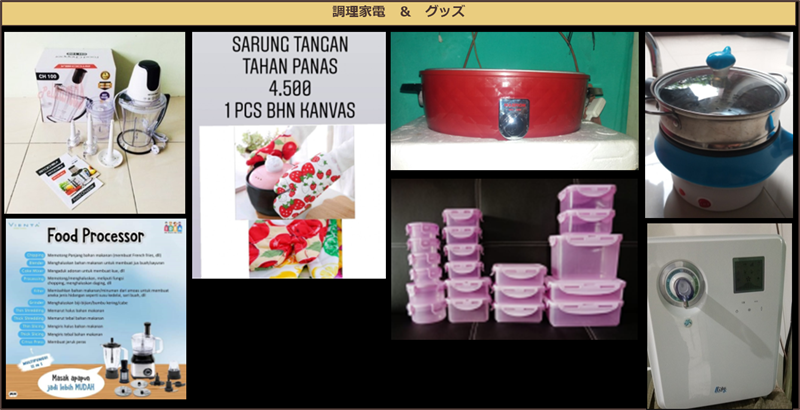
In addition to what is introduced in this article, the survey also captures the actual situation and changes in a wide range of fields in the three ASEAN countries, as well as new trends that are being seen in services in each country.
The survey revealed that sei-katsu-sha in each country have reaffirmed their appreciation for good health, have become more mindful of the people close to them, and have begun to seek spiritual enrichment.
I believe that corporate attitudes, services, and products that are in tune with such life-size consumers will attract sympathy and support. This analysis is based on the results of a voluntary survey conducted by Intage with the following design.
[Voluntary survey data from Intage's online research
Survey area: U.S. (all over the U.S.), Thailand (Greater Bangkok), Vietnam (Ho Chi Minh City, Hanoi), Indonesia (Jabodetabek)
Eligibility: Males and females aged 20-49, annual household income of $40,000 or more in the U.S., SEC (Socioeconomic Class) A and B in ASEAN
Sampling method: Thailand, Vietnam, and Indonesia were selected from Intage's ASIAN PANEL, and the U.S. was selected from dataSpring's panel and questionnaires were distributed.
Sample size: n=836 (U.S.) n=824 (Thailand) n=838 (Vietnam) n=829 (Indonesia) Survey period: May 1, 2020 to May 7, 2020
-
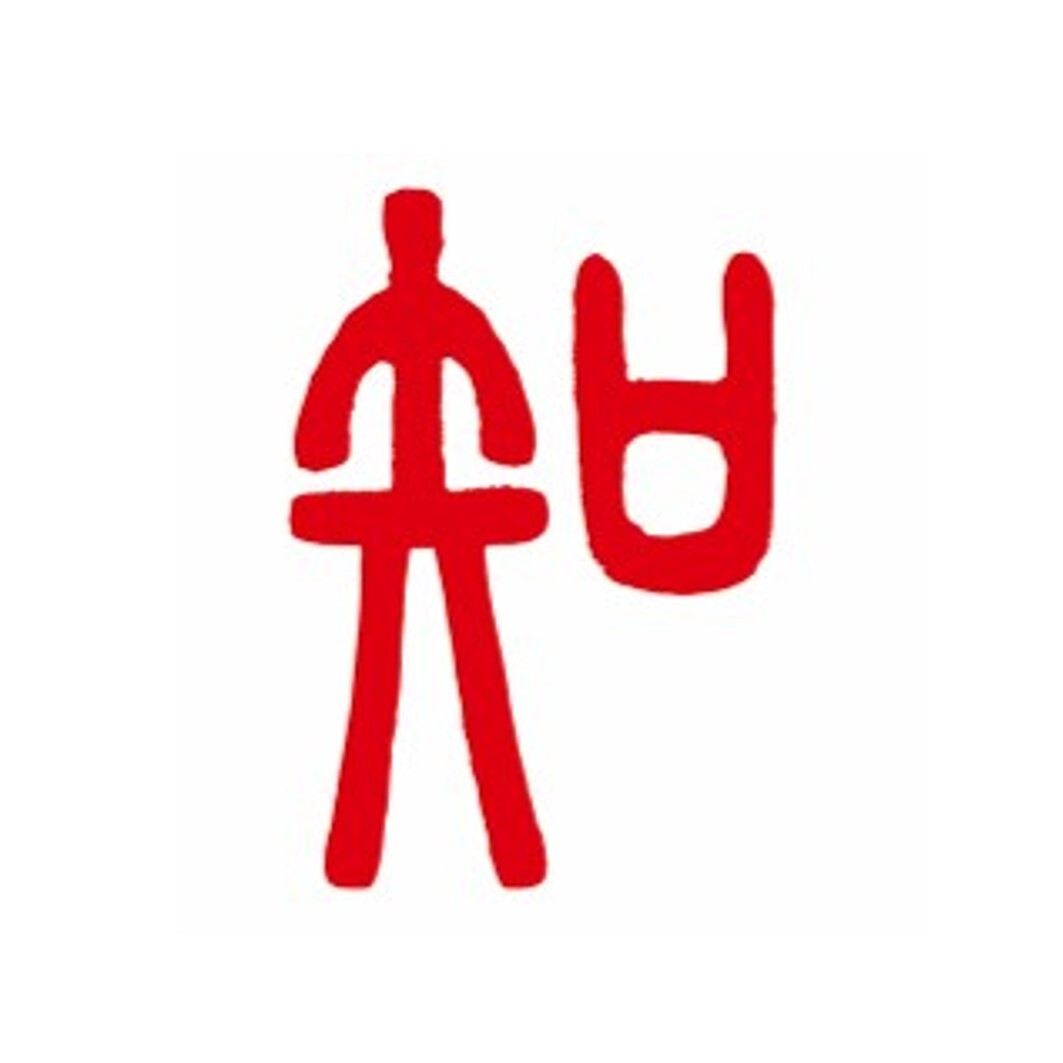
Author profile
Intage Inc
***
-

Editor profile
Intage Inc.
***
 Global Market Surfer
Global Market Surfer CLP
CLP